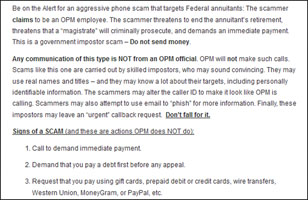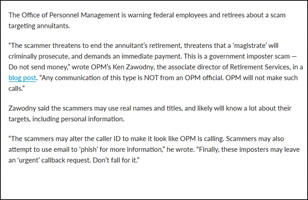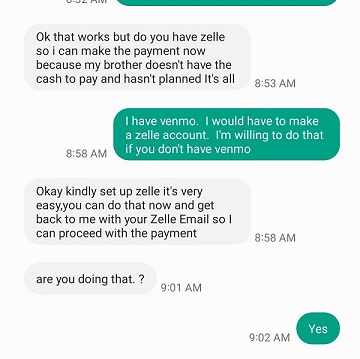Personal Management Scams
Personal management scams pose a serious threat to your financial security. Explore the deceptive tactics scammers use to exploit personal information and gain valuable insights into protecting yourself from these fraudulent schemes. Arm yourself with knowledge to safeguard your financial well-being and prevent falling prey to scams.
Government Impersonation Scams: Protecting Yourself from Fraud
It's essential to recognize that legitimate government authorities or the consulate general of the USA will never request personal or financial information from citizens or immigrants entering the country. However, scammers often impersonate government executives, particularly in immigration departments, to extract vital information from their targets. These fraudsters employ tactics like sending phishing emails or making direct calls, applying maximum pressure on unsuspecting individuals. When innocent people provide sensitive details such as credit card numbers, these scammers immediately exploit the situation, resulting in significant financial losses for numerous victims.
scam! Some random person Paypal'd me 40$ and is asking for it back.
Beware of Impersonation: Personel Management Scams on the Rise
Personnel management scams are on the rise and gaining popularity. In these scams, perpetrators impersonate the US Personnel Management department, sending official-looking correspondence to the target group. The attached letter appears authentic, complete with logos and official signatures. The scammers claim to have crucial information, stating, "We have received important details that your sensitive information, such as SSN, credit card, and other personal data, has been compromised. We can assist you professionally, but only if you provide your personal information." These emails often contain malicious links, and when the target group clicks and enters the required details, scammers promptly siphon off money from their bank accounts. The Federal Commission consistently warns people against responding to such emails, as they are solely from the scammers' world.
Beware of Rising Job Scams: A Cautionary Tale for Unemployed Individuals
Individuals in the USA who are unemployed or underemployed should exercise caution when opening their emails, as job-related scams are on the rise. Phishing emails sent by scammers often appear legitimate, with sentences free of grammatical errors, giving the impression that they were sent by executives from the US Personnel Management. Job seekers and unemployed individuals should avoid responding to such emails, as scammers attempt to extract personal and financial information from the target group. The cyber cell has noted several instances of scamming activities related to job hunting and employment groups. An interesting scam involves unemployed individuals paying several dollars in response to an advertisement, ordering a postal job information book, only to realize later that it was a clear case of fraud as they never received the promised informative book.
Globe Life Job Scam
Public should examine everything thoroughly and should check the authenticity and honesty of the mailer before replying to their mails. Following guidelines will be of immense help to the public:
- Government employees, especially those from the US Government, will never directly send emails to the public to extract financial or personal information from citizens.
- If individuals receive such emails, they should verify their authenticity and conduct a background check on the sender.
- Never respond to scamming or phishing emails; instead, delete them permanently from your computer.
-
If individuals receive phone calls from scammers, they should note the caller ID and report the matter to the cyber cell for further investigation.
Protect Yourself: Recognizing and Avoiding Personal Management Scams
Scams related to personal management are evolving, and it's crucial for individuals to stay informed and vigilant. Perpetrators often masquerade as representatives of the US Personnel Management department, using sophisticated techniques to deceive their targets. One prevalent tactic involves sending official-looking correspondence with logos and signatures, claiming to have vital information about the theft of sensitive details like Social Security numbers and credit card information.
In these scams, the scammers assert that they can provide professional assistance only if the target provides personal information. The phishing emails contain links that, when clicked, lead the victims to fake websites designed to capture their confidential information. The scammers exploit this information to commit identity theft and financial fraud, draining funds from the victims' bank accounts.
The Federal Trade Commission (FTC) consistently warns individuals not to respond to such emails, emphasizing that they are entirely fabricated by scammers. It's crucial for people to be discerning and verify the legitimacy of any communication claiming to be from official government departments. The rise of these scams underscores the need for increased awareness and education to protect individuals from falling victim to such fraudulent schemes.







